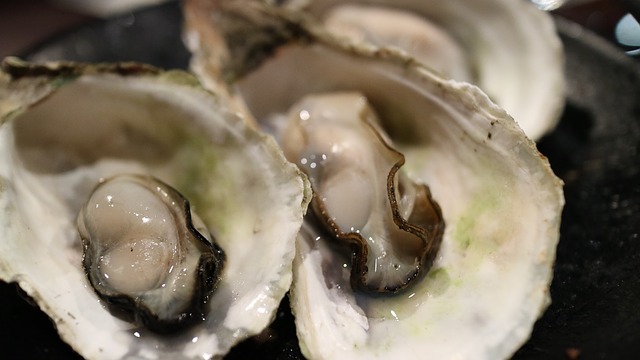Officials with Public Health — Seattle & King County are investigating an outbreak of gastroenteritis with watery diarrhea, abdominal cramping, and vomiting associated with consumption of raw oysters at Salted Sea located at 4915 Rainier Ave S #101, Seattle, WA 98118.

One person has laboratory-confirmed Vibrio parahaemolyticus and two others have symptoms suggestive of vibriosis.
Two people from one dinner party became ill after eating raw oysters at the restaurant on June 9, 2017. Another person from a separate party became ill after eating raw oysters at the restaurant on June 17, 2017. Public Health learned of the outbreak on June 22nd.
The investigation conducted at Salted Sea identified no factors that contribute to the spread of Vibrio, such as insufficient refrigeration temperatures or evidence of cross-contamination.
Public Health also reported the illnesses to Washington State Department of Health (DOH) Shellfish Program, which is responsible for tracking the reports and harvest locations of the oysters implicated in these illnesses. The oysters served at each of the meals were harvested from multiple growing areas/bays in Washington State.
Vibrio parahaemolyticus is a bacterium in the same family as those that cause cholera. It lives in brackish saltwater and causes gastrointestinal illness in humans. V. parahaemolyticus naturally inhabits coastal waters in the United States and Canada and is present in higher concentrations during summer.
V. parahaemolyticus causes watery diarrhea often with abdominal cramping, nausea, vomiting, fever and chills. Usually these symptoms occur within 24 hours of ingestion. Illness is usually self-limited and lasts 3 days. Severe disease is rare and occurs more commonly in persons with weakened immune systems.
Related: Spokane reports 1st ever hantavirus case
Health officials offer the following advice to prevent infection with Vibrio:
- Because raw seafood can be contaminated with Vibrio, always cook shellfish and other seafood thoroughly before eating.
- Wash cutting boards and counters used for shellfish preparation immediately after use to avoid cross contaminating other foods.
- Wash hands thoroughly with soap after handling raw shellfish.
- Stay out of brackish or salt water if you have any wounds (including scrapes and cuts), or cover your wound with waterproof bandage to prevent a skin infection.
Wash wounds and cuts with soap and water if they have been exposed to seawater or raw seafood and raw seafood juices, to prevent a skin infection from Vibrio.
Related:
- Vibrio vulnificus: Mobile County reports 4th confirmed case
- Hajj pilgrimage: Vaccine requirements and other health advisories
- Cholera update: Yemen and Nigeria
- ORENCIA approved for the treatment of Psoriatic Arthritis
- Vaccines: How they work and some common misconceptions
- Utah E. coli outbreak update: 11 confirmed cases, investigation ongoing
- Lyme disease research grants awarded to MIT, Brandeis researchers
- Measles in Europe: ‘Every death or disability is an unacceptable tragedy’


Interesting as usual